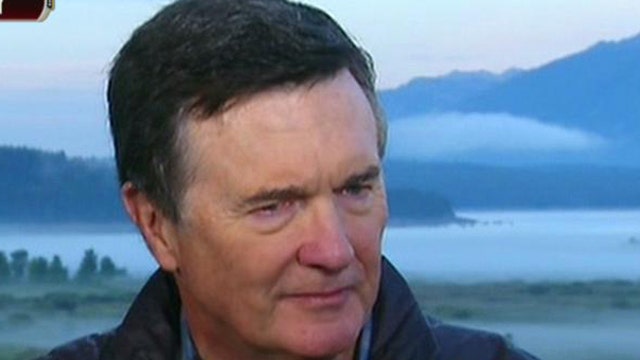Fed’s Lockhart: Tapering in 2013 Contingent on Economy
Dennis Lockhart, president of the Federal Reserve Bank of Atlanta, said the central bank will likely scale back its $85 billion bond-buying program later this year if economic conditions match the Fed’s outlook.
“Well, as you know, the way many of us operate is we start with an outlook,” Lockhart explained in an interview with FOX Business’s Peter Barnes, adding that he expects the economy to improve in the second half. “If that outlook holds, then I think we can consider beginning to wean the economy from quantitative easing.”
When asked if tapering could come into play as soon as the Fed’s next meeting in September, Lockhart said he wouldn’t rule it out, although tapering could also come later.
“One thing to keep in mind is between now and September 18, we will not have a lot of new information. So it depends, I think, for an individual policymaker how you're actually building your case.”
The road to tapering is not a “start to finish kind of plan that we commit to now,” Lockhart said. “I'm really thinking that this is driven by data and as the data come in, we will determine what the state of the economy is.”
He also noted that so far, higher long-term interest rates haven’t held the economy back, and he believes the economy will be able to absorb an increase in rates that would accompany the end of quantitative easing.
As for the fiscal battle in Washington, D.C., Lockhart reiterated his concern that it could serve as a “blow to consumer confidence.” He pointed to the decline in consumer confidence and the country's downgrade by Standard & Poor’s about two years ago.
Lockhart also commented on the departure of Chairman Ben Bernanke, whose term ends in January. He stressed that a leadership change is presumed, since it’s possible Bernanke could stay on if asked by President Barack Obama.
Assuming Bernanke does leave, Lockhart doesn’t see the leadership change as a factor on policy making.
“The chairman of the Federal Reserve is no question, very, very influential, but is not a dictator,” he said. “And in that sense, the committee will meet and come to a consensus, and I don't think the secession questions factor into the policy questions.”




















